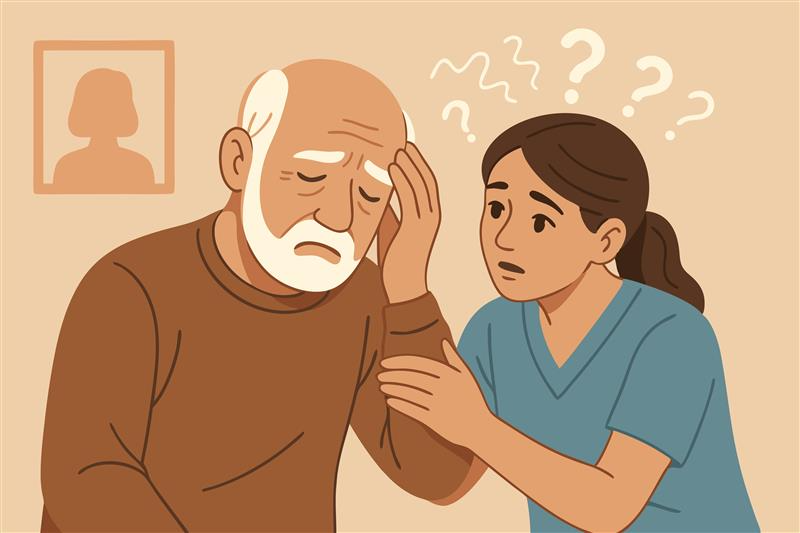In today’s fast-paced world, the spotlight often falls on mental health conditions that disrupt daily life. Dissociative Amnesia stands among them, though it’s often shrouded in mystery and misconceptions. My journey to understand this condition began with a simple question: what causes people to forget significant parts of their identity? Understanding involves appreciating the severe memory disruptions that define this condition. These disruptions are typically triggered by traumatic life events that the individual cannot process.
The Intricacies of Dissociative Amnesia
The brain is a complex marvel, reacting to stress uniquely. Dissociative Amnesia involves losing chunks of personal past entirely.
It stuns me how deeply this can alter identity and self-worth. It’s more than forgetting small things; it means losing life-affirming memories. Many times, this stems from past trauma, often in childhood years. Picture waking up without remembering who you were for years.
Sadly, many don’t understand Dissociative Amnesia correctly. Some think it’s from a novel tale: sudden loss of identity. Teaching others helps clear misconceptions and supports everyone in comprehending this condition better.
We all forget things like items or meetings sometimes. But Dissociative Amnesia is distinct from normal forgetfulness or conditions like Alzheimer’s, which is due to real changes in the brain. This amnesia comes from the mind protecting itself and is usually temporary, not rooted in biology.
Dissociative Amnesia emerges as protection when trauma happens; it’s how the mind cushions overwhelming distress. While it protects initially, it becomes disruptive and challenging to live with regularly.
Diverse Forms and Causes of Dissociative Amnesia
Dissociative Amnesia comes in different types, not just one form. Localized amnesia makes people forget a specific time period. Selective amnesia is when only parts of events are recalled. Continuous amnesia affects memories from the past into the future. Systematized amnesia is about forgetting things related to specific themes or people. Generalized amnesia means losing memory of one’s entire life history.
Childhood can leave lifelong marks on a person, good and bad. Sadly, early trauma, abuse, or neglect can dig deep scars in the psyche. Dissociative Amnesia often ties back to these early experiences. What happens in childhood can mold someone later in unexpected ways.
Some believe there’s also a genetic piece of the puzzle. Besides trauma, genes may heighten the risk for dissociative disorders. It’s a blend of our genes and what life throws our way—that’s what shapes us.
The world today exposes us to many stressors that might harm us. Violent experiences or disasters can trigger Dissociative Amnesia. Handling severe stress sometimes leads to unexplainable memory lapses. Knowing these risks helps catch issues early and possibly prevent them.
Recognizing the Symptoms
If I were to pinpoint the most striking symptom, it would be the substantial memory lapses. Imagine not remembering birthday celebrations, weddings of close family members, or the names of childhood friends. These gaps often represent entire chapters of one’s life erased from conscious memory.
Beyond memory lapses, dissociative amnesia symptoms include feelings of detachment from oneself. Some individuals have described it as seeing the world through a foggy lens, where everything seems unreal—living in a state of derealization and depersonalization, detached from one’s emotions.
In practical terms, these symptoms translate into tangible challenges. At work, misunderstanding job tasks or forgetting crucial deadlines can be common, while personal lives might suffer from forgotten anniversaries, creating rifts in relationships. Day-to-day life often requires significant coping skills or support to navigate these memory-related troubles.
It’s essential to recognize that Dissociative Amnesia rarely occurs in isolation. It often coexists with anxiety, depression, and intense feelings of hopelessness. The psychological toll of not knowing oneself and grappling with mental voids can be overwhelming. Dissociative amnesia stories I’ve encountered reveal frequent encounters with suicidal thoughts, highlighting the dire need for understanding and timely intervention.
Symptom episodes in dissociative amnesia can be unpredictable and fluctuating. They might disappear for prolonged periods only to resurface suddenly, often triggered by stress or reminders of trauma. It’s the uncertainty of these episodes that can make living with this condition exceedingly challenging.
Unraveling the Diagnosis and Differentiating from Other Conditions
Unraveling the complexities of diagnosing dissociative amnesia often involves delving carefully into a person’s past. Medical histories, structured interviews, and specific tests are necessary to pinpoint causes of memory issues and ensure other conditions aren’t overlooked. It’s a meticulous process aiming to achieve clear understanding.
Drifts between dissociative amnesia and fugue states or PTSD can look similar but differ in small ways. Fugue involves unexpected travel with memory loss, while PTSD centers on intrusive memories and high emotional response. Distinguishing these needs keen clinical observation and understanding.
Addressing dissociative amnesia requires a wide-ranging strategy that combines medical insights, psychology evaluations, and personal stories from those affected. Focusing on a single aspect can lead to crucial elements being missed, which may hinder effective treatment.
Treatment Pathways and Long-Term Management
Psychotherapy is a primary tool in addressing dissociative amnesia issues. Trauma-focused therapies help tackle the lingering effects involving deep-seated trauma.
Cognitive behavioral techniques aid in changing negative attitudes tied to trauma. Slowly, individuals begin fitting memory pieces together to lessen distress levels.
Though therapy is central, medication can help manage related conditions like anxiety. These medicines stabilize mood swings and potentially mitigate symptom severity.
Having strong support systems is vital for effective recovery from amnesia. Family and friends provide a nurturing environment, encouraging memory restoration over time.
Getting help promptly is crucial when symptoms affect daily living. Professional guidance aids in navigating this condition, reinforcing support’s importance.
Raising Awareness and the Road to Recovery
Dissociative amnesia emerges from trauma, causing life changes in big ways. With proper therapy, symptoms ease, and hope rises. Understanding these challenges helps create a caring group around.
Early help is crucial for smoother recovery journeys. Knowing the signs of dissociative amnesia brings faster help to those in need. A supportive community reaches out like a safety net in tough times.
Recovery can happen. With the right diagnosis of dissociative amnesia and careful attention, lost stories can be retold. Comprehensive treatment offers clear paths to healing and new beginnings.
Success stories have great power; they show resilience shines through adversity. Take Sandra’s story: she battled dissociative amnesia with therapy and firm community support. Her case study shows us the strength found in unity, promising brighter days ahead.

